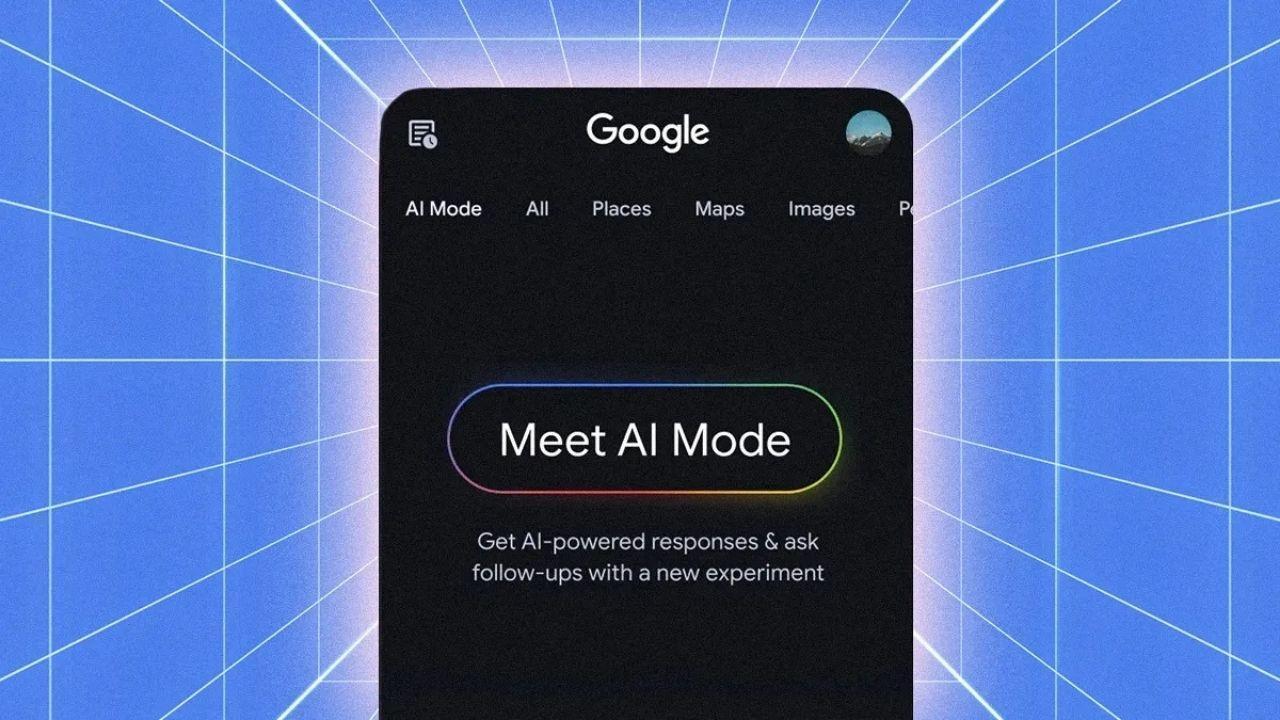
Post by : Anis Al-Rashid
Search has typically meant typing keywords and scanning results pages. With Google’s AI Mode now available in India, users can pose conversational, multimodal questions and receive consolidated, contextual answers instead of a list of links.
This change simplifies how people find information, but it also shifts expectations for content makers, advertisers and publishers. Grasping how AI Mode functions and its wider effects is important for all digital stakeholders.
AI Mode accepts typed queries, spoken prompts and images. For instance, a user can photograph a broken appliance and ask for repair advice. The system combines visual recognition with language understanding to generate relevant responses.
The feature can manage layered, multi-part questions and follow-ups. It parses each element, runs parallel analysis and synthesises coherent replies so users can pursue a line of inquiry naturally.
Rather than relying solely on static knowledge, AI Mode incorporates up-to-date information and local context where appropriate, delivering answers that reflect current facts and trends.
After trial runs with selected users, AI Mode has been rolled out more broadly with a simplified interface. It supports multiple input methods and is being extended to cover additional Indian languages to serve a diverse user base.
The new mode reduces steps to an answer. Instead of opening many pages, users receive concise, practical guidance that saves time.
Support for voice and image queries helps those who find typing difficult and, by adding regional languages, lowers barriers for wider adoption.
AI Mode can assist with planning travel, interpreting policies, diagnosing plant issues or providing stepwise fixes for technical problems.
As people receive more actionable results, they will increasingly expect solutions rather than just links, changing how queries are formed and how content is consumed.
Shifts in Visibility: Summaries provided by AI Mode could reduce direct visits to source sites, affecting traffic.
Importance of Content Format: Clear, structured, problem-solving content will be favoured in AI-driven responses.
Maintaining Trust: Accuracy and authority are essential for content to be used reliably by AI systems.
Adapting SEO Strategies: SEO must evolve to target conversational and multimodal queries rather than just keywords.
Brand Presence in AI Answers: Companies need plans for appearing in AI-generated recommendations and summaries.
Optimizing for Voice and Visual Search: Ensuring visibility for spoken and image-based queries is increasingly important.
Improved Convenience: Search becomes more solution-oriented and intuitive.
Reduced Click-Through: Direct answers may lead to fewer site visits, raising verification concerns.
Data Awareness: Richer inputs like voice and pictures mean users should consider privacy and data usage.
Language Inclusivity: Expanding language support can narrow the digital divide and boost regional uptake.
Ensuring Access: Reliable infrastructure will be needed so users in less connected areas can benefit.
Evolving Content Economy: Publishers may need new revenue models as traditional web traffic patterns change.
AI Mode can err or produce biased outputs; cross-checking remains necessary. Publishers should prioritise factual, well-sourced material.
Fewer clicks to original content could reduce advertising income, prompting publishers to revise monetisation approaches.
Using voice and image inputs involves more personal data. Users should understand how their information is handled.
Accurately interpreting dialects and local context is still difficult and may limit performance in some regions.
The rise of AI summarisation will require a rethink of how search engines and publishers generate and share revenue while keeping the ecosystem balanced.
People will increasingly ask multipart, natural-language questions and expect comprehensive, actionable responses.
Input methods will broaden to include text, voice, images and video, enabling more intuitive problem-solving interactions.
Search outputs will shift toward checklists, recommendations and step-by-step guidance across many everyday tasks.
Search will become a practical tool for real-world problem solving, reshaping digital habits in multilingual, multi-device environments.
The arrival of AI Mode in India marks a notable change in how people search online. Users gain quicker, more practical answers while publishers and businesses face new challenges in visibility, SEO and monetisation.
Adapting content and strategies to this shift—from simple link retrieval to interactive problem solving—will be crucial for success.
This article is for informational purposes only. It does not constitute professional advice. Users should verify features, policies, and privacy implications directly with service providers before making decisions.










Zohran Mamdani Elected New York City Mayor; Victory Celebration Features Bollywood Hit
Zohran Mamdani wins NYC mayoralty, the city's first Muslim and South Asian mayor; victory rally even

Nita Ambani Cheers India’s Women’s World Cup Triumph
Nita Ambani celebrated India’s Women’s World Cup win with grace and elegance, cheering proudly in st

Victoria Mboko Wins Montreal and Hong Kong Titles
Teen tennis star Victoria Mboko wins Montreal and Hong Kong titles, defeating Grand Slam champions a

Suns Defeat Spurs 130–118, Booker Leads with 28 Points
Devin Booker scored 28 points and 13 assists as the Phoenix Suns ended the San Antonio Spurs’ unbeat

Wolves Remove Coach Pereira After Poor Premier League Run
Wolverhampton have dismissed manager Vitor Pereira after failing to win any of their first ten Premi

Travis Head Leaves T20 Squad For Ashes Preparation
Australia’s Travis Head leaves T20 series against India to join Sheffield Shield for red-ball practi